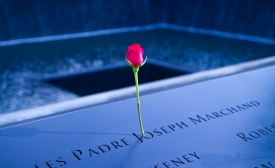iraq
Leaving Iraq will ease the US of the burdensome image of invader and occupier of a Muslim country, which of course has strengthened al-Qaeda and like-minded groups from the Maghreb to Indonesia.
For two countries that have spent so much time together, the traces of an American cultural impact are faint and will grow dimmer still as the United States military withdraws...but there is a hip-hop scene.
One decade later, has anything changed? This question was asked over and over during the 10th anniversary of the 9/11 attacks.
This is the first attempt at cultural diplomacy in the area and the concert discussed is part of a series designed to fulfill the requirements of a grant that provided instruments to the Mosul Academy of Fine Arts Institute. The diplomats who organized the concert are trying to balance the needs of the majority Kurdish Yezidi and minority Arab Muslim and Iraqi Christian populations.
On the tenth anniversary of 9/11, Arabs opinion is, in my view, unduly harsh on a well-intentioned president. After all, the president is fulfilling his commitment to withdraw from Iraq and Afghanistan, and is certainly not meddling in the Middle East to prop up unpopular dictators...

Sherine B. Walton, Editor-in-Chief
Naomi Leight, Managing Editor
Tracy Bloom, Associate Editor
As the US role in Iraq shifts from military cooperation to a civilian partnership led by the State Department, Clinton has focused on commercial diplomacy — building economic links —- as a way of fostering government transparency, political stability and stronger ties.
Kane concluded that the Turkish “blend of Islam, democracy, and soft power is a far more attractive regional template than the Iranian narrative of Islamic theocracy and hard power resistance.”







